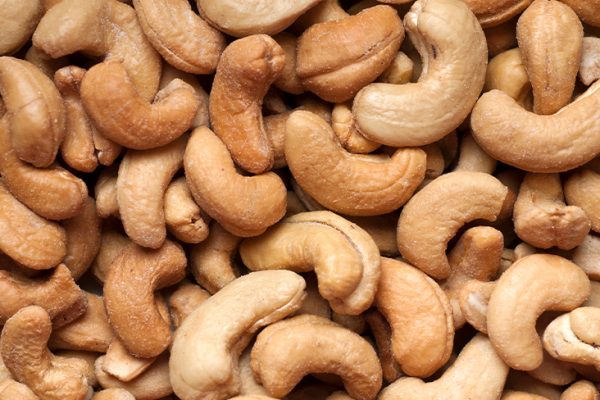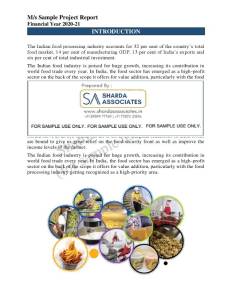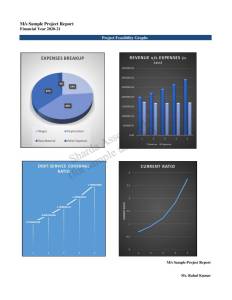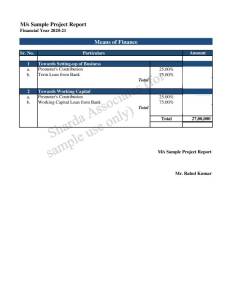Project Report For Cashew Industry
Introduction
Project Report For Cashew Industry is as follows.
A cashew processing factory is a facility that is especially built to convert raw cashew nuts into edible cashew kernels, which are frequently used in a variety of culinary applications and consumed globally. The process is divided into various steps, beginning with the cleaning and grading of raw nuts and ending with the packing of processed kernels.
The raw cashew nuts are inspected and sorted as the initial stage in cashew processing. This is done to ensure that the batch is free of any damaged, faulty, or alien stuff. After that, the nuts are cleaned to eliminate dirt and other contaminants. The nuts are dried after cleaning to minimise moisture content and enable long-term preservation.
The cashew nuts are shelled after drying, which is the process of removing the exterior hard shell. This was traditionally done by hand, but current processing companies use mechanical or automated ways to improve efficiency and production. The shelled cashew nuts are then classified according to size and quality.
The thin seed coat or testa that surrounds the cashew kernel is then removed. This is usually accomplished by roasting or steaming, which loosens the seed coat and makes it simpler to remove. Following the removal of the testa, the cashew kernels are assessed based on size, colour, and quality. Grading maintains consistency and permits cashews to be classified into several groups according on market need.
After grading, cashew kernels are frequently roasted to increase flavour and eliminate any leftover moisture. Roasting also increases the shelf life of the kernels. The roasted cashews are then chilled and processed further to eliminate any remaining foreign materials. Finally, the kernels are packaged in a variety of materials, such as vacuum-sealed bags or tin containers, and are ready for distribution and consumption.
To carry out these numerous phases properly, cashew processing factories require specialised equipment and gear. Cleaning, drying, shelling, grading, roasting, and packing machinery are included. Furthermore, quality control procedures are put in place throughout the process to guarantee that the finished product satisfies industry standards and client expectations.

Types Of Cashew Industry
Cashew Farming: This industry covers the cultivation of cashew trees as well as the manufacture of raw cashew nuts. Cashew cultivation may range from small-scale family-owned farms to big commercial operations.
Cashew Processing: Cashew processing factories specialise in converting raw cashew nuts into edible cashew kernels. These facilities clean, grade, shell, roast, and package cashews for the market.
Cashew Exporting: Exporters are responsible for procuring processed cashew kernels from processing companies and exporting them to overseas markets. They guarantee quality standards are met, manage logistics, and ease worldwide distribution.
Cashew Wholesaling: Wholesalers buy in bulk from processing factories or exporters and distribute them to retailers, supermarkets, and other enterprises. They frequently use distribution networks to reach a large number of customers.
Cashew Retailing: Cashew nuts and cashew-based goods are sold directly to customers by retailers through physical storefronts or online platforms. They cater to a wide range of consumer tastes by offering a choice of packaging options, flavours, and value-added items.
Cashew Product Manufacturing: This industry produces high-value cashew goods such as cashew butter, cashew milk, cashew snacks, and confectionery. These goods are made with processed cashew kernels as the principal component.
Market Potential Of Cashew Industry
The Cashew Market is predicted to be worth USD 7.57 billion in 2023 and USD 8.91 billion by 2028, increasing at a CAGR of 3.31% during the forecast period (2023-2028).
Veganism and plant-based diets have been increasingly popular globally in recent years. The demand for nuts and recipes with nuts has increased as a result of people who eat vegan, plant-based diets favour protein sources other than those derived from animals.
Cashews have more fibre than peanuts and help with weight gain by improving digestive function. To meet the need for such high-value nutrition, such as ready-to-drink cashew milk, which serves as a lactose-free milk substitute. Cashew nut consumption is increasing in the European Union as a result of greater consumer health consciousness. Cashew nuts are increasingly being used as an ingredient in spreads and snack bars (especially organic), which is driving up overall cashew consumption.
However, with foreign manufacturers joining the market and offering a wide range of cashew products that adhere to the region’s better dietary guidelines, the use of cashew kernels in consumer diets has remained consistent throughout South America.
Project Report On Cashew Industry
Need Help?
Create 100% Bankable Project Report





